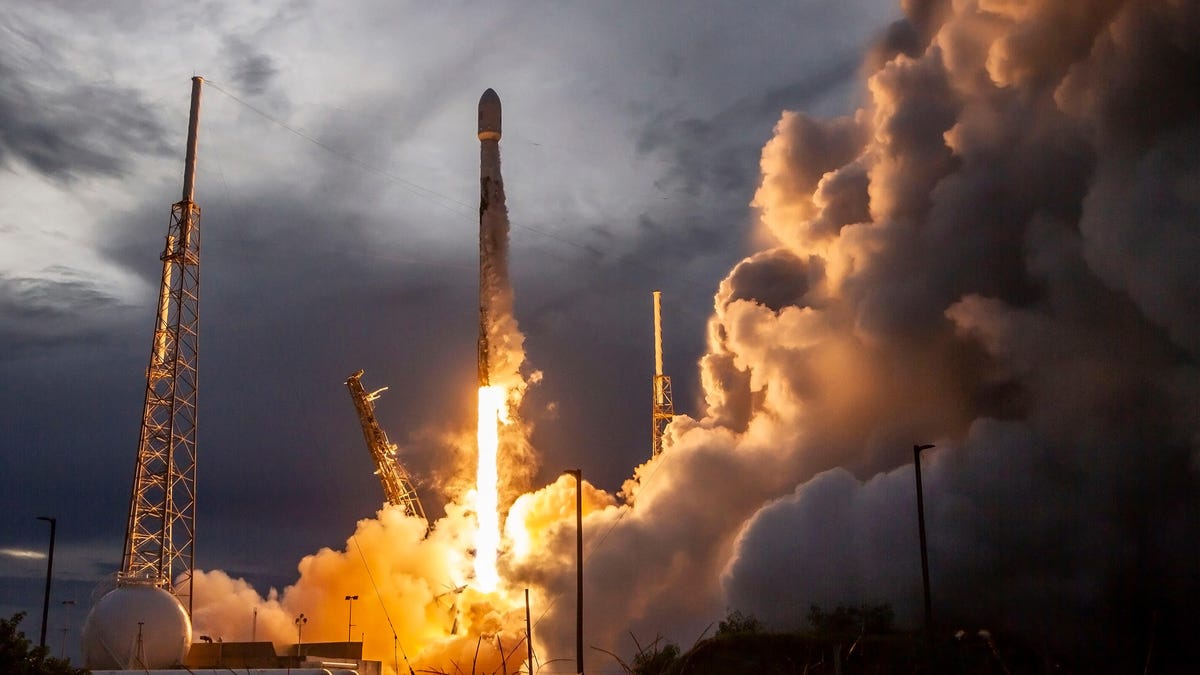SpaceX Starlink mega-constellation grows again with latest Falcon 9 launch
Weather postponed the launch Sunday, but SpaceX is racing toward its first 1,000 broadband satellites in orbit.

A Falcon 9 blasts off on Aug. 30.
Elon Musk's brain-computer company has been getting a lot of attention, but his spaceflight company also pulled off two launches this week, including another SpaceX Starlink launch Thursday morning from Cape Canaveral in Florida.
Before some pesky weather hit Sunday, SpaceX had planned to attempt this launch within nine hours of another SpaceX mission to send an Argentinean Saocom satellite to orbit. The latter made it off the pad and returned in spectacular fashion, but the Starlink launch was postponed.
Liftoff! pic.twitter.com/sTZnAn3VTX
— SpaceX (@SpaceX) September 3, 2020
It finally blasted off at 5:46 a.m. PT (8:46 a.m. ET) from Launch Complex 39-A at the Kennedy Space Center, sending 60 more Starlink broadband satellites to space.
The link to the video feed is embedded below.
The Falcon 9 rocket booster being used for the launch previously flew on June 30, delivering a US Space Force satellite to orbit. It landed for a second time on a SpaceX droneship in the Atlantic about nine minutes after liftoff Thursday.
This is the 11th operational flight for the Starlink satellite megaconstellation, which is designed to provide internet across the planet. Each Starlink launch features a batch of around 60 satellites and there are over 600 in orbit.
Starlink has caused significant pain for astronomers, who say the satellites are bright enough to disturb their imaging of the cosmos. SpaceX is working with the astronomical community to minimize interference, but there's a long way to go. The satellites are now being launched with "sunvisors" which make them less reflective, but at a recent satellite conference in the US, there was only one suggestion to eliminate the impact entirely: launch fewer or no LEO satellites.
SpaceX is planning two more Starlink missions for the month of September.



